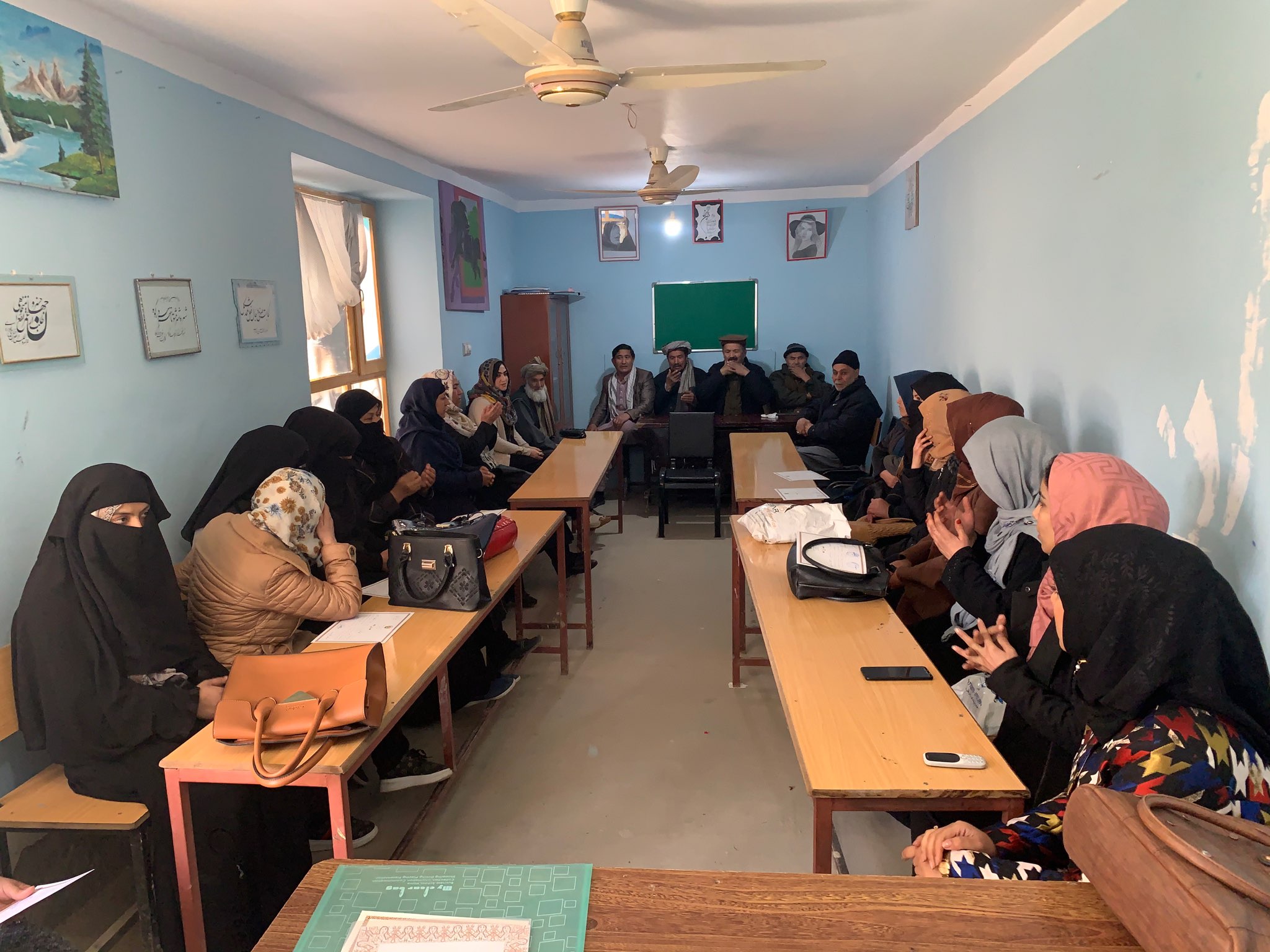
Women have taken the Lead to Change and Prosper Lives
The Citizens' Charter program covers the eight district of Mazar-i-Sharif in Balkh province. There are many community development councils established, and out of them, one of the councils called the "Sayed Abad Development Council of Etefaq Naween Gozar" is one of the more active council. The mentioned council covers about 249 households in total, of which 49 % residents constitute the women. More importantly, some of the households are run and headed by women. Our figures show that 46 households are headed by the women.
Against the local taboos, the women take part in community level decision making. The Women Empowerment Committee has taken a series of incredible measure to advance economic prosperity of the women and awareness programs. Recently, they launched a nine-month literacy program for women and girls who were dropped from the primary school to get adult literacy education. As a result of such an initiative, 52 women and girls were graduated, which shows unparalleled success rate for women in communities.
In countries such as Afghanistan, hit by continuous war and turmoil, community based local driven programs plays an important role. The women work for their fellows and they are becoming self sufficient both economically and socially. They remain in a good position to take decisions for their betterment in a patriarchal society such as Afghanistan. The second impact is that not only the literacy courses have helped them advance their education, but it makes them eligible to get enroll into the school because the graduation certificates are accepted officially for enrollment in the schools. The Women Empowerment Committee has encouraged the girls and women who are graduated to get admission in the school and pursue their education. In the admission process, the committee members are providing necessary support, whenever required. Currently, 17 of them who have pursued literacy courses have successfully passed the school entry exam. Some are granted admission in class 6 and others in class 7. Moreover, the Women Empowerment Committee have gone the extra mile, opening to more initiatives. The school was facing shortage of books. When they came to know about this, they started a local campaign of collection of books. They went from house to house, collected the books and then handed over to the school administration. It indicates a good example of how women in communities are collectively supporting each other for girls and women education.
DMM/IDLG
×
![]()